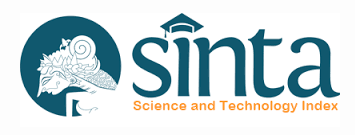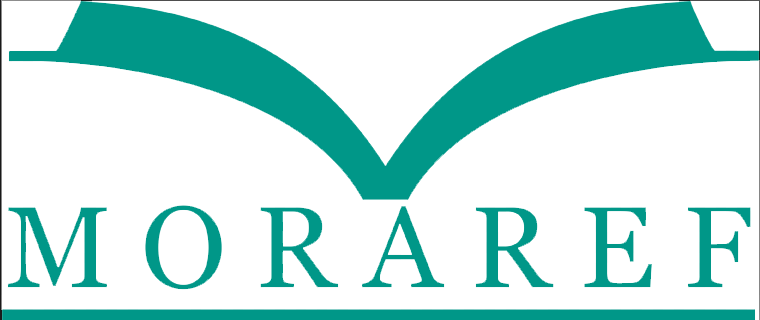Kajian Fenomenologi tentang Kinerja Berorientasi Individu dalam Ilmu Amaliah pada Yayasan Wakaf Universitas Muslim Indoesia
Abstrak
This study used a qualitative intrepretif paradigm in the study of phenomenology which describes the relationship between action and meaning. Measures refers to several things and meaning not only find, but the interpretation of active and disciplined. Interpretation Creative to ensure the possibility of action meaning and message. Action and meaning in an effort to understand the indivdual performance. Individual performance in the foundations need to study in depth because it is very different from the characteristics of other organizations. This study is to formulate how the meaning of an individual's performance on the YW-UMI to find the meaning of the performance of the YW-UMI. Looked at narrowly performance is only noticed aspects of shareholder interests and ignoring the interests of other causes not achieving the purpose of the foundation is to salvation people. Solutions to interpret the performance of the performance paradigm must be built for the benefit of the people. Oriented interests for the benefit of the individual, social, and spiritual. Our research found meaning in the knowledge amaliah performance on the Foundation Waqf Indonesia Muslim University (YW-UMI). Meaning an individual's nature in carrying out the activities of the foundation. Amaliah knowledge was reflected in the individual nature of YW-UMI. Individual properties are referred to as STAFH (Siddiq, Tabliqh, Amanah, Fathonah, and Himayah).Referensi
Abbot. WF. dan Monsen, Ri. 1979. “On the Measurement of Corporate Social Responsibility: Self-Reported an Method of Measurement Corporate Social Involvement”, Academy of Munagentent Journal, Vol. 22: 50l-515.
Bastaman. 2010. Akhlakul Karimah Sebagai Manifestasi Ubudiyah, 04 October.
Bastian, Indra 2007. Akuntansi Yayasan dan Lembaga Publik, Erlangga.
Baridwan, Zaki. 2000. Intermedite Accounting. BPFE, Yogyakarta
Biddle, Garry C.; Robert M. Bowen; dan James S. Wallace.1997. Does EVA Beat Earning? Evidence on Association with Stock Returns and Firm Values, Journal of Accounting and Economics. Journal of Organizational Behavior. Vol 24: 301-334
Borahima, Anwar. 2010. Kedudukan Yayasan di Indonesia, Edisi Pertama Cetakan ke 1, Kenjana Prenada Media Group, Jakarta.
Bourdieu, P. 1986. The Form of Capital. In J. Richardson (Ed). Handbook of Theory and Research for Sociology of Education. New York: Greenwood Press.
Bragdon, J.H dan Marlin, JU.A.T. 1972. ” Is Pollution Profitable”. Risk Management. Vol 19, No. 4: 9-18
Brigham, Eugene F dan Joel F. Houston. 2001. “Manajemen Keuangan Buku II”. Erlangga, Jakarta.
Brown, L. David dan Mark H. Moore. 2001. Accountabilty, Strategy, and International Non Govermental organization. Working Paper, Harvard University
Emzir. 2008. Metodologi Penelitian Pendidikan Kuantitatif & Kualitatif. PT RajaGrafindo Perkasa, Jakarta.
Ester, Ralph. 2005. Tyrrany Of Bottom Line; Mengapa Banyak Perusahaan Membuat Orang Baik Bertindak Buruk, PT. Gramedia Pustaka Utama, Jakarta
Estes, Ralph. 1976. Corporate Social Accounting. New York: Wiley,
Johnson , Leigh. 2009. The Countribution of NGOS Healt in Developing Word. Dissertation, The University of Texas at Arlington.
Jones, Gareth. R. 2004. Organizational Theory, Design and Change, Text and Cases. Pearson Education Inc.
Kahmat, Dadang. 2000. Metode Penelitian Agama, Pustka Setia: Bandung.
Prawirosentono, Suyadi. 1999. Kebijakan Kinerja Karyawan, Edisi Pertama, BPFE, Yogyakarta.
Prodjodikoro, R. Wirjono. 1995. Hukum Perdata Tentang Persetujuan Tertentu,:Sumur, Bandung.
Putnam, R., 2000. Bowling Alone: The Collapse and Revival of American Community. Simon and Schuster, New York.
Ritzer, George dan Douglas J Goodman. 2004. Teori Sosiologi Modern. Prenada Media, Jakarta
Rivai, Veithzal. 2009. Islam Human Capital (Dari Teori Ke Praktik) Manajemen Sumber daya Islami, PT Raja Grafindo Persada, Jakarta
Robbins, Stephen P. 2001. Organizational Behavior, New Jersey: Pearson Education International
Sonny, Keraf, A., Mikhael D. 2001. Ilmu Pengetahuan: Sebuah Tinjauan Filosifis, Kanisius, Yogyakarta.
Spencer, Lyle M., Jr. dan Signe M., Spencer. 1993. Competence at Work: Models for Superior Performance. John Wiley & Sons. Inc.
Stewart, G. Bennett. 1990. The Quest for Value, Harper Colins Publishers Inc.
Struman, M. C. 2001. Searching for the inverted U-shaped Relationship Between Yime and Performance: Meta-Analysis of the Experience/ Performance, Tenure/Performance and Age/Performance Relationship, USA. Journal of Management. Vol 29: 610-640.
Sudewi, Sri. 2000. Hukum dan Pribadi, Gajah Mada, Yogyakarta.
Supramono. 2008. Yayasan di Indonesia, Edisi Pertama Cetakan ke 1, Kenjana Prenada Media Group, Jakarta.
Swasono, Sri Edi. 1988. Sekitar Kemiskinan dan Keadilan, UI Press: Jakarta
Taimiyyah, Ibn., Taqiyudin Ahmad. 1988. Al-Siyasah Al-Syari'iyyah Fi Ishlah At-Rai lha Al-Ra'ivvah. Beirut:Dar Al-Kutub Al-llmiyyah.
Triyuwono, Iwan. 2002. Sinergi Oposisi Biner: Formulasi Tujuan Dasar Laporan Keuangan Akuntansi Syari'ah. Makalah Simposium Nasional Sistem Ekonomi Islami yang diselenggarakan oleh Pusat Pengembangan Ekonomi Islam Fakultas Ekonomi Universitas Islam Indonesia. 13-14 Maret 2002.
Triyuwono, Iwan. 2003. Akuntansi Syariah,: Emansipasi Nilai Lokal. Ekonomi dan Bisnis Pascasentralisasi Pembangunan, Bayumedia Publishinh, Malang, 5
Triyuwono, Iwan. 2007. Mengangkat ”Sing Liyan ”Untuk Formulasi Nilai Tambah Syari‟ah. Makalah disampaikan dalam Makalah Simposium Nasional Akuntansi X Unhas 26 – 28 Juli 2007 Makassar.
Triyuwono, Iwan. 2012. Akuntansi Syariah, Perspektif, Metodologi, dan Teori. Jakarta: Penerbit PT. Raja Grafindo Persada.
Triyuwono, Iwan., As’udi. 2001. Akuntansi Syariah: Memformulasikan Konsep Laba dalam Konteks Metafora Zakat, Salemba Empat. Jakarta.
Triyuwono, Iwan., Moh As’udi. 2004. Akuntansi Syariah (Memformulasikan Konsep Laba dalam Konteks Metafora Zakat). Salemba Empat, Jakarta.
Uep, Tatang Sontani., Sambas Ali Muhidin. 2010. Desain Penelitian Kuantitatif. Bandung: Penerbit Karya Adhika Utama.
YW-UMI. 2004. Melempangkan Jalan Pengabdian: Prof. Dr. H. Abdurrahman Basalamah, Cetakan Pertama, Nopember. Makassar
YW-UMI. 2009. Laporan Tahunan Yayasan Wakaf Universitas Muslim Indonesia
YW-UMI. 2011. Yayasan Wakaf UMI, Laporan Aktifitas Yayasan.










